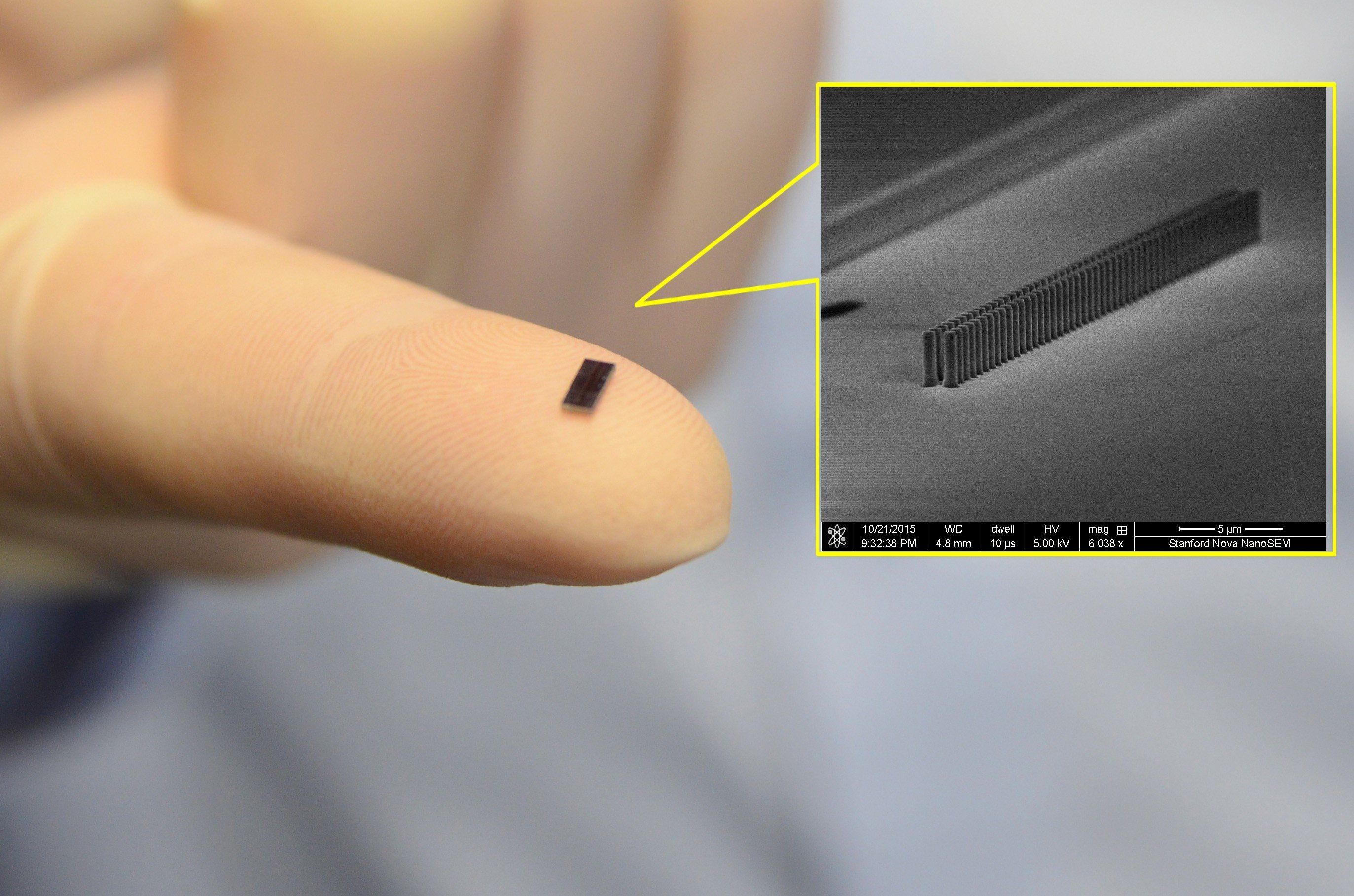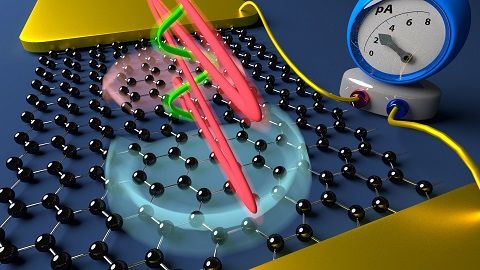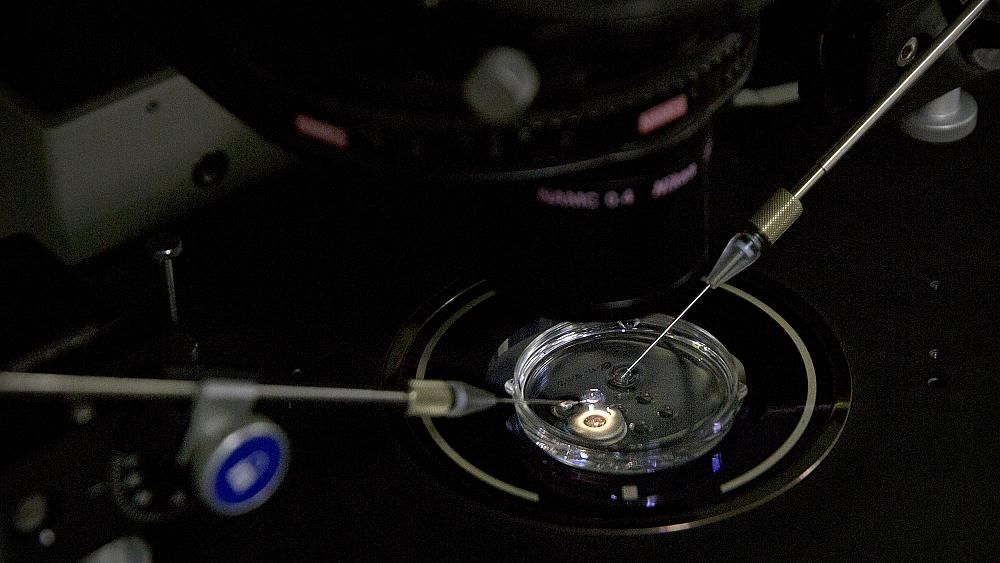Jewellery and grooming items found during summer excavation in Lincolnshire.



Electrical engineers in the accelerator physics group at TU Darmstadt have developed a design for a laser-driven electron accelerator so small it could be produced on a silicon chip. It would be inexpensive and with multiple applications. The design, which has been published in Physical Review Letters, is now being realised as part of an international collaboration.

IMAGE: The driving laser field (red) ‘shakes’ electrons in graphene at ultrashort time scales, shown as violet and blue waves. A second laser pulse (green) can control this wave and thus determine the direction of current. (Image credit: FAU/Christian Heide)
Being able to control electronic systems using light waves instead of voltage signals is the dream of physicists all over the world. The advantage is that electromagnetic light waves oscillate at petaherz frequency. This means that computers in the future could operate at speeds a million times faster than those of today. Scientists at Friedrich-Alexander University (FAU; Erlangen-Nurenberg, Germany) have now come one step closer to achieving this goal as they have succeeded in using ultra-short laser impulses to precisely control electrons in graphene. The scientists published their results in Physical Review Letters.
Current control in electronics that is one million times faster than in today’s systems is a dream for many. Ultimately, current control is one of the most important components as it is responsible for data and signal transmission. Controlling the flow of electrons using light waves instead of voltage signals, as is now the case, could make this dream a reality. However, up to now, it has been difficult to control the flow of electrons in metals as metals reflect light waves and the electrons inside them cannot be influenced by these light waves.
Ever since 2014, Italy-based Youbionic, which was founded by Federico Ciccarese and specializes in robotics and bionics, has been working on its 3D printed, robot-controlled, bionic prosthetic hand. The company started taking pre-orders for the bionic prosthetic two years ago, and has since been making improvements and updates to the original model, even coming out with a 3D printed double hand device for the augmented human. Now, Youbionic has released its latest bionic product – the Youbionic One.
“We believe that technology at our disposal today can be used for the increase in human capabilities and intervention in the replacement of parts of our body which are not working properly,” Ciccarese wrote in an email.
“Youbionic is committed every day to create technologies that can elevate mankind to a higher level.”

Volvo is about to launch its first-ever commercial operation using its driverless truck technology. A deal with a Norwegian mining firm will see six of its autonomous vehicles carry limestone between the mine and a port in an operation aimed at boosting productivity and reliability, as well as safety.

A team of scientists has discovered a single-site, visible-light-activated catalyst that converts carbon dioxide (CO2) into “building block” molecules that could be used for creating useful chemicals. The discovery opens the possibility of using sunlight to turn a greenhouse gas into hydrocarbon fuels.

All of today’s computing takes its root from the world of “bits”, where a transistor bit, which lies at the heart of any computing chip, can only be in one of two electrical states: on or off. When on, the bit takes on a value of “1” and when off, it takes on a value of “0”, constraining the bit to only one of two (binary) values. All tasks performed by a computer-like device, whether a simple calculator or a sophisticated computer, are constrained by this binary rule.
Eight bits make up what is called a “byte”. Today, our computing is based on increasing the number of bytes into kilobytes, megabytes, gigabytes and so on. All computing advances we have had thus far, including artificially intelligent programmes, and driverless cars are ultimately reduced to the binary world of the bit.
This is a natural extension of western thought; for centuries, western philosophy has followed the principles of Aristotelian logic, which is based on the law of identity (A is A), the law of contradiction (A is not non-A), and the law of the excluded middle (A cannot be both A and non-A at the same time, just as non-A cannot be both non-A and A at the same time).

For a few people—those who are terminally ill, in severe pain and determined to die—suicide may be the least terrible option. In such circumstances, and with firm safeguards, doctors should be allowed to assist. But many of the 800,000 people who kill themselves each year act in haste, and more could be saved with better health services, labour-market policies and curbs on booze, guns, pesticide and pills. America, in particular, could spare much pain by learning from the progress elsewhere.
Urbanisation, fewer forced marriages and more curbs on the means of self-destruction.
